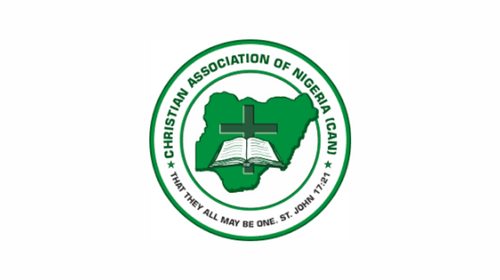The North West chapter of the Christian Association of Nigeria (CAN) has expressed strong criticism regarding President Bola Tinubu’s recent appointments to the board of the North West Development Commission, alleging that the board consists solely of Muslims. This development has reignited discussions about representation and inclusivity in governance, particularly in a region known for its diverse religious and ethnic make-up, including both Christians and Muslims. Elder Sunday Oibe, the Chairman of the North-West CAN, highlighted that such a lack of representation raises serious concerns about the underlying intentions of President Tinubu’s administration, especially in light of the controversial Muslim-Muslim ticket used in the 2023 presidential election.
Elder Oibe’s statement underscored that the North-West region comprises various indigenous groups, including Christians, whose interests must be represented in the commission’s leadership. The absence of any Christian representatives from the board is perceived by CAN as a deliberate oversight that marginalizes a significant segment of the population. Oibe pointed out that suggesting that all individuals in the region are Muslims undermines the reality of its demographic diversity. He asserted that the current appointments reflect an alarming trend towards exclusion and potentially sow the seeds of discord by disregarding these communities in crucial governance roles.
The CAN leadership’s response calls into question the principle of inclusivity in a multi-religious state like Nigeria. By highlighting the demographics of the seven states within the North-West—Kaduna, Kano, Jigawa, Katsina, Kebbi, Sokoto, and Zamfara—Oibe emphasized the vital need for representation that authentically reflects the constituents’ diversity. The assertion is that failing to appoint Christians not only alienates this group but also disregards their contributions and presence in Nigerian society. The call for action from the Christian community in the region emphasizes the broader implications for governance and social cohesion, stressing the importance of recognizing all facets of Nigeria’s rich tapestry.
Oibe admonished President Tinubu to take heed of these concerns, suggesting that overlooking such disparities could lead to further marginalization and exacerbate existing religious tensions in Nigeria. The Chairman urged the administration to revise the board’s composition to include Christians, thereby embracing a more inclusive governance model. Such a move could not only facilitate a more cohesive approach to regional development but also serve to promote unity among different religious factions. He argued that without proactive measures to address the lack of representation, the commission risks failing in its objectives.
Furthermore, Elders Oibe’s remarks included a plea for patience within the Christian community, urging them to remain calm while awaiting possible changes from the presidency regarding these appointments. He indicated that, should the situation remain unchanged, the association might explore spiritual avenues to seek divine intervention against the perceived injustices. This reflects a broader sentiment within the faith community about the importance of addressing grievances through both civic engagement and spiritual means, particularly in a nation where faith plays a central role in public life.
In conclusion, the North West CAN’s strong response to the appointments by President Tinubu highlights significant issues concerning representation, inclusivity, and communal harmony in Nigeria. With calls for a reconsideration of board memberships that reflect the region’s diversity, the association has articulated the urgent need for authorities to prioritize unity over division. As the discourse on religious and ethnic representation continues, it becomes increasingly imperative for leaders to address these concerns, ensuring fair governance that respects the multifaceted identities of Nigeria’s populace. The ongoing debate signals broader implications for the nation’s leadership, as the reflection of its diversity is paramount to fostering peace and collaborative progress in a country marked by its complex social tapestry.


